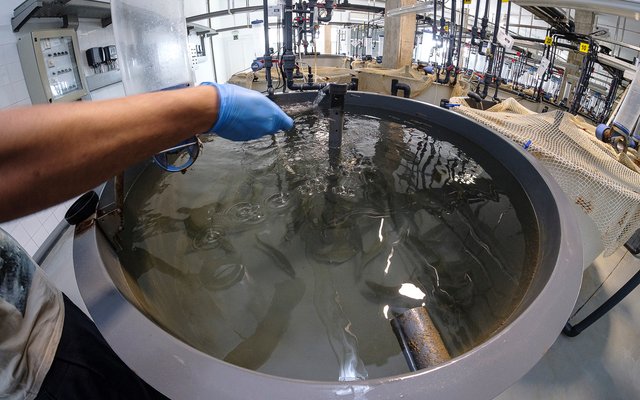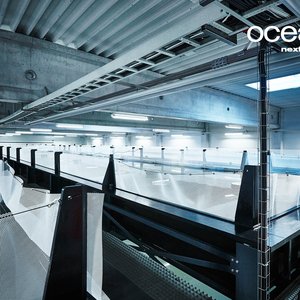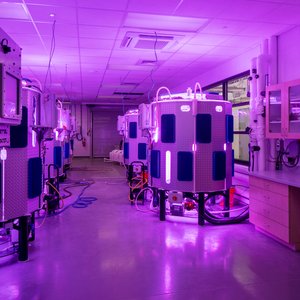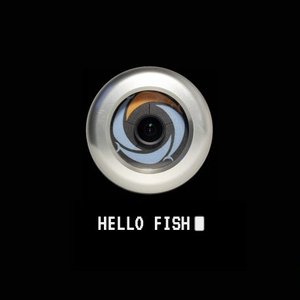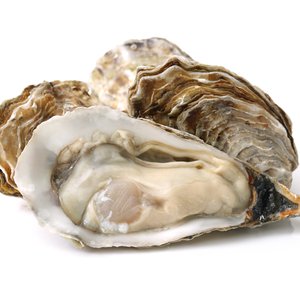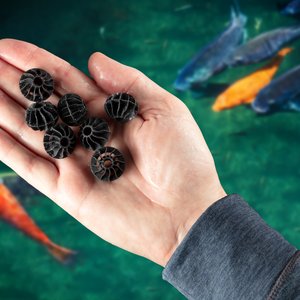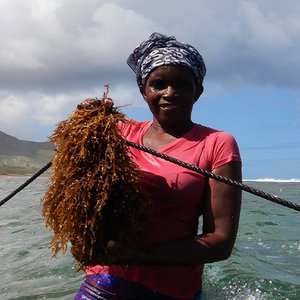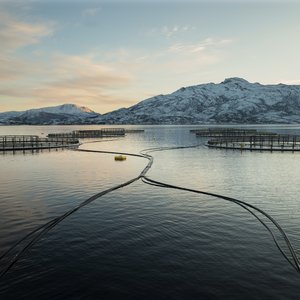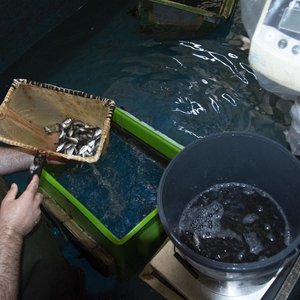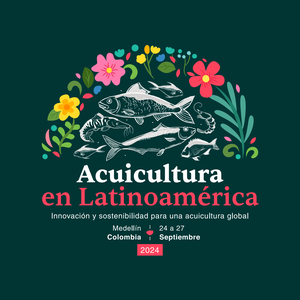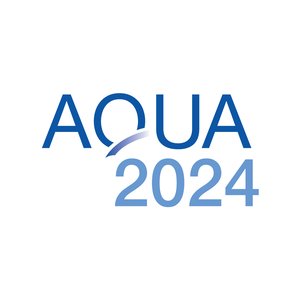A study led by the University Institute for Research in Sustainable Aquaculture and Marine Ecosystems (IU-ECOAQUA) of the University of Las Palmas de Gran Canaria (ULPGC), found that genetically selected European seabass (Dicentrarchus labrax) raised on sustainable diets is higher in nutrients and lower in fat.
The work, which is part of the EU-funded AquaIMPACT project, Genomic and Nutritional Innovations for Genetically Superior Farmed Fish, aimed to determine the effect of genetic selection on seabass growth.
The two families of juveniles were obtained by in vitro fertilization, selected for a multi-trait including high growth (genetically selected) or non-selected (wild type) broodstocks. Both were then fed either a control diet based on commercial standards with fishmeal (20%) and fish oil (7%) or a diet based on more sustainable ingredients reducing fish-based ingredients. The sustainable diet partially replaced fishmeal with poultry meal and totally replaced fish oil with a blend of rapeseed oil, poultry oil and DHA-rich-algal oil.
From the second month of feeding until the end of the trial, the genetically selected seabass obtained better growth results than the wild genotype, related to better feed and nutrient utilization. Both genetic selection and feeding with sustainable feeds resulted in final fish with less perivisceral fat and richer in nutrients such as omega-3. In addition, during breeding, there was more efficient retention of proteins, with a better digestibility coefficient for protein and amino acids, thus increasing the availability of nutrients for the seabass.
“Our data demonstrate that multi-trait genetic selection of European seabass improves fish plasticity to cope with the variations of ingredients in alternative feeds with low fishmeal and fish oil,” researchers said.
The project was led by ULPGC Aquaculture Research Group with the University of Insubria (Italy), Skretting, the University of Montpellier, the Union of Poultry and Aquaculture Breeders in France (SYSAAF), and the Gravelines Marine Hatchery as partners.
Reference:
D. Montero, M. Carvalho, G. Terova, R. Fontanillas, A. Serradell, R. Ginés, V. Tuset, F. Acosta, S. Rimoldi, A. Bajek, P. Haffray, F. Allal, S. Torrecillas. Nutritional innovations in superior European sea bass (Dicentrarchus labrax) genotypes: Implications on fish performance and feed utilization. Aquaculture, Volume 572, 2023, 739486, ISSN 0044-8486, https://doi.org/10.1016/j.aquaculture.2023.739486


